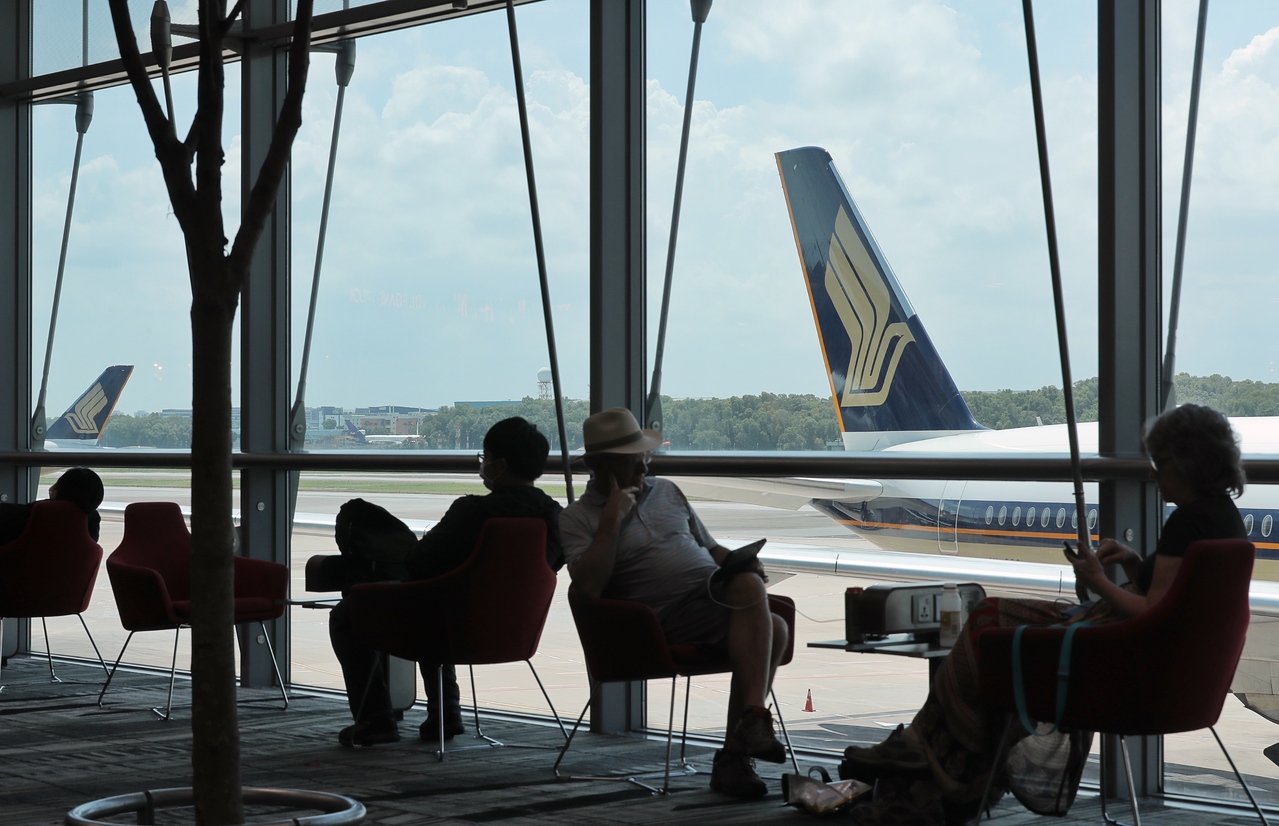Parliament: Aviation development fund extended for 5 more years to meet growing air travel demand
Sign up now: Get ST's newsletters delivered to your inbox

Senior Minister of State for Transport Lam Pin Min noted that air passenger numbers are expected to double from four billion to eight billion globally in the next 20 years.
ST PHOTO: GAVIN FOO
SINGAPORE - A $280 million fund to help aviation firms boost their productivity will be extended for another five years till 2025, to meet the growing demand for air travel in the coming years.
In announcing that the Civil Aviation Authority of Singapore (CAAS) will extend the Aviation Development Fund, Senior Minister of State for Transport Lam Pin Min noted that air passenger numbers are expected to double from four billion to eight billion globally in the next 20 years.
One in two of this growth will be in Asia, he said on Thursday (March 5) during the debate on his ministry's budget.
"We cannot meet the new demand just by growing manpower; we need to leverage technology and raise productivity. We will help companies transform and capture new opportunities," he added.
The development is aimed at raising the overall productivity of Changi Airport, and reinforce its status as a competitive air hub with investments in technology.
Dr Lam said the fund has helped some 80 organisations raise productivity through more than 200 initiatives since it was launched in 2010 with an initial sum of $100 million and renewed in 2015 with a further $160 million.
Real value-add per worker has increased by more than 7 per cent between 2015 and 2018, he added.
One initiative that has raised productivity is smart glasses deployed by ground handler Sats, which use augmented reality technology to help workers track the real-time location of baggage and cargo units and reduce loading time.
The extra investment comes amid the coronavirus outbreak, which has heavily impacted the maritime and aviation sectors.
To train the next generation of workers in both sectors, Dr Lam said two new work-study diploma courses in airport operations and maritime business management will be launched in April.
On the sustainability front, Singapore will move towards more environmentally friendly fuel for aircraft, to contribute to the International Civil Aviation Organisation's (ICAO) goals of a 2 per cent annual fuel efficiency improvement and carbon neutral growth from 2020 onwards.
Sustainable aviation fuels (SAFs), which can reduce emissions by up to 80 per cent over their life cycle compared with conventional jet fuel,will play a role in that approach, despite them being "two to five times" more expensive today.
"The Government and the industry players are studying different business and technological models to enable economically viable and sustainable SAF supply chains in Singapore," Dr Lam said.
Singapore's aviation community will also work towards greener aviation by buying more fuel-efficient aircraft, and investing in new technologies.
The country will also participate in the voluntary phase of an international aviation carbon reduction scheme that starts next year.
Under the scheme, Singapore-based airlines will freeze their carbon footprint at current levels by reducing emissions and purchasing carbon credits.
"Singapore will not just be a competitive international transport hub but also a sustainable one," said Dr Lam.
Separately, the Maritime and Port Authority of Singapore will launch the Maritime Singapore Decarbonisation Blueprint 2050 next year, and with its partners set aside $40 million to study and adopt low-carbon technologies.


